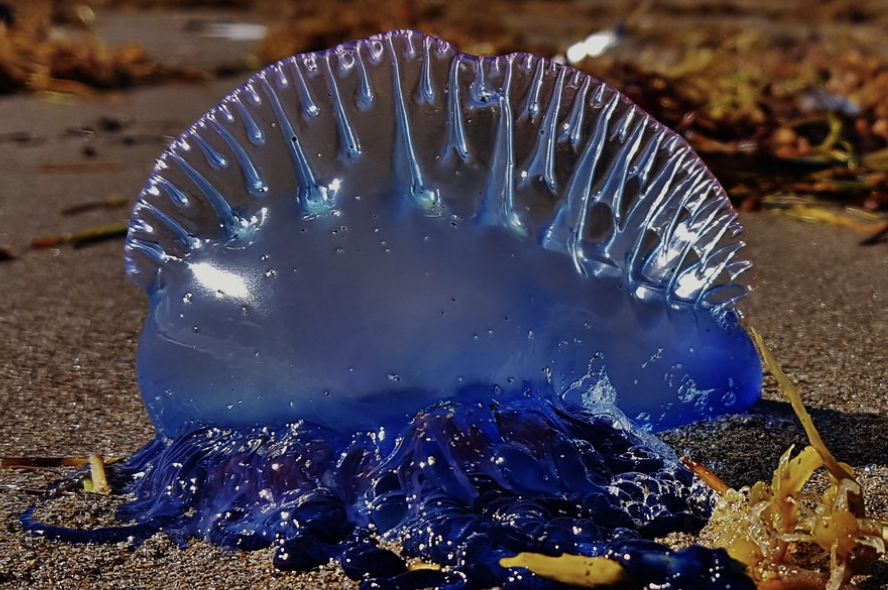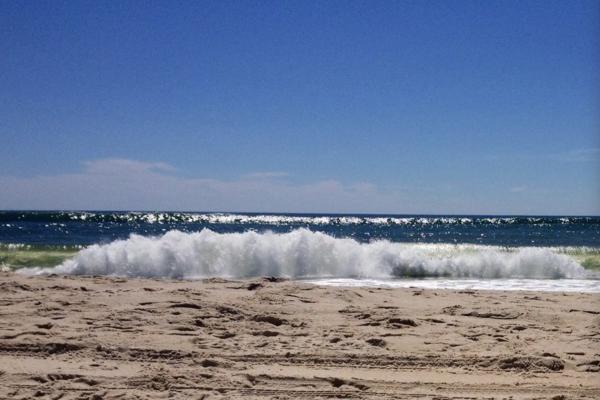It's June 20th, the official start of summer and the longest day of the year. For many of us, this conjures up thoughts about beaches and the ocean. Some people are scared of the ocean. This may not help soothe your fears, but it's interesting anyhow.
1. The Ocean Temperature is All About the Wind - Cold Water Upwelling
Last week, the ocean temperature on Fire Island (1) finally reached a swimmable temperature. I'm guessing it was nearly 70 degrees. It felt great. Yet, the week before, if you stuck your toes in, they immediately disconnected from the rest of your central nervous system. Maybe 60 degrees. Wouldn't jump in there if I were on fire. So, what happened? What didn't happen was that the ocean warmed up in one week from the sun. It could just as easily be 60 again next week. So, what is going on?
The answer is the wind, which is the main driver of ocean temperature on east coast beaches. The wind direction can change the water temperature by 10 degrees in a few hours. It is the result of something called cold water upwelling, which is nicely illustrated by the figure below. When the wind is blowing onshore (off the ocean), it blows in a "disk" of warm, clear surface water, which forces the deeper colder water away from the beach. The result is blue-green tropical-looking water. But, when there is a strong offshore wind, the opposite occurs. The surface water is pushed away from the beach, and a phenomenon called cold water upwelling forces deeper water, which is darker and cloudy (algae prefer cold water), to the surface. The effect can be quite dramatic.

Because of this effect, experienced oceangoers can usually tell whether the ocean will be warm or cold before they ever reach the beach, simply by noting the direction and strength of the wind. And when they get there, the color of the water is a dead giveaway. Dark or brown means cold. Blue-green means warm. You have probably seen something like this before:

(Left) Cold, (Right) warm. Same spot, same beach, different day with a different wind direction.
Rule of thumb: If you can smell the ocean before you get to it, it is usually a good swimming day (2).
Little known fact: Many beaches are hotter in the morning than in the afternoon because of the sea breeze. Why?
During the day, the sun heats the land faster than the sea. As the land warms, the air above it heats up and rises, creating low pressure. Cooler, denser air from the sea moves in to replace the rising warm air, creating a sea breeze. This breeze typically develops in the late morning to early afternoon and can extend several miles inland, providing a cooling effect
2. The purple and black sand is not dirty
I can't even estimate the number of times that I have heard people look at the dark sand that is found on many beaches, and comment how awful it is how we've polluted the ocean with oil or whatever. But they are completely wrong. Here's what is really going on:

Purple and white, and black sand. Photo credit: Fire Island National Seashore
The dark sand is a mixture of three minerals — quartz, garnet, and magnetite, which can be clearly seen under a microscope. If you take a magnet to a handful of the stuff, all the black gets picked up, leaving behind the purple and white. It works just like this guy that you may have played with as a kid.

Photo credit: Wikipedia
3. Blue is a great color, but not so much in the ocean
Although they are usually found in southern waters, Portuguese Man-of-War can be carried by winds and the Gulf Stream far up the East coast of the Atlantic.

Portuguese Man-of-War. Hideous lifeform. Photo: Flickr
There are precisely two redeeming qualities of Portuguese Man-of-War:
- They are very easy to spot because of a bright blue balloon-like air sac that floats atop the water.
- I lied. There isn't anything else good about them.
You do NOT want to experience this sting. It is very painful. So, if you see something blue floating at you, I recommend that you:
- Scream
- Turn around and run the other way
- When you get there, keep going
Here is something else blue that you would do well to avoid. A bluefish:

Bluefish Credit: Shutterstock
Looks harmless enough, right? Nope:

These bad boys are not only in a perpetually lousy mood, but they have teeth to back it up. They have been known to bite through fishing hooks, so the following observations should not be a surprise: The Outdoor Life website's "10 Fish You Need to Handle With Care" tells you all you need to know:
- "If they had a taste for human flesh, no one would go swimming." (My personal favorite)
- "Mangled fingers cut to the bone will be your souvenir for a careless hook extraction"
- "True or not, bluefish seem to bite with purpose."
So, have a nice safe summer. Enjoy the beach, but never turn your back on the ocean. Rookie mistake.
Notes:
(1) Fire Island National Seashore, a 32-mile barrier island, is part of a 120-mile group of beaches stretch that span from Coney Island all the way to Montauk. It is one of only a handful of developed islands in the US where there are no cars.
(2) An offshore wind in the summer is a double whammy. Not only is the ocean freezing, but the normal sea breeze "loses" the fight with the offshore wind, and the beach is hot. A hot beach plus really cold water isn't a great combination.
#This article is modified from a similar piece published in 2021




